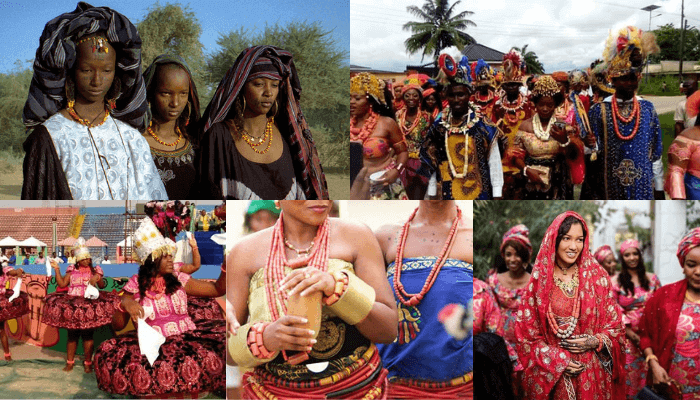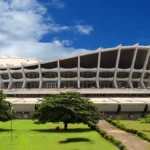Thinking about visiting Nigeria? One of the most remarkable things you’ll encounter is the country’s rich tapestry of tribes and ethnic diversity. Nigeria is often referred to as the “Giant of Africa”—not just because of its large population or economic influence, but because of the beautiful complexity of its people. With hundreds of distinct ethnic groups and a history that spans centuries, Nigeria’s tribal landscape is a kaleidoscope of culture, color, and charisma.So before you hop on that plane, here are 10 essential things to know about the tribes of Nigeria—who they are, what makes them unique, and why exploring them will make your trip unforgettable.

1. Nigeria Has Over 370 Tribes
Yes, you read that right. Nigeria is home to over 370 ethnic groups, each with its own language, traditions, customs, and worldview. While three major tribes—Hausa-Fulani, Yoruba, and Igbo—often dominate the headlines due to their size and influence, the smaller groups such as Tiv, Ibibio, Nupe, Kanuri, Gwari, Idoma, Itsekiri, and Ijaw also play important cultural roles.Each tribe has distinct languages, although many Nigerians are multilingual, often speaking their native tongue, English (Nigeria’s official language), and Pidgin English, a widely spoken lingua franca across the country.
2. Tribal Cultures Are As Diverse As They Are Deep
What makes Nigerian tribes so fascinating is the depth and variety of their cultures. From the dress codes to traditional music, to how they pass on folklore, tribal cultures differ profoundly.
- The Hausa-Fulani of the north are known for their Islamic heritage, elaborate attire like the Babban Riga, and intricate architecture seen in ancient cities like Kano and Zaria.
- The Yoruba in the southwest have a rich pantheon of deities (Orishas), colorful festivals like the Osun-Osogbo Festival, and an impressive traditional chieftaincy system.
- The Igbo in the southeast are recognized for their entrepreneurial spirit, masquerade festivals (Mmanwu), and deep respect for community meetings (Oha-na-eze).
- The Tiv, found in the middle belt, are famous for their black and white striped “anger” attire and yams festivals.
- The Ijaw, based in the Niger Delta, have a strong aquatic culture, reflected in their music, dance, and ceremonies that honor water spirits.
These cultures are celebrated not just in rural areas, but also in urban hubs where tribal identity is still strong.
3. Food Is a Cultural Identity
Every tribe in Nigeria has signature dishes that reflect their climate, resources, and way of life.
- The Yoruba favor hearty soups like Efo Riro, Gbegiri, and Amala, often made with rich, spicy flavors.
- The Igbo boast traditional delicacies like Ofe Nsala (white soup), bitterleaf soup, and Abacha (African salad).
- The Hausa-Fulani enjoy meals like Tuwo Shinkafa, Miyan Kuka, and Kilishi (spicy dried meat similar to jerky).
- The Efik and Ibibio are known for Edikang Ikong and Afang soups, both loaded with vegetables and seafood.
- The Itsekiri and Urhobo tribes offer Banga soup, made from palm fruit extract and fresh fish.
Food is a major part of tribal identity, and one of the best ways to understand Nigerian culture is through its cuisine. Travelers are always encouraged to eat like a local—it’s an adventure on its own.
4. Marriage Traditions Are Tribe-Specific and Ceremonial
Marriage in Nigeria is a big deal, and tribal affiliations strongly influence how marriages are conducted.
- Among the Yoruba, introduction ceremonies (called Mo mi ‘n’ mo o), followed by traditional engagement with gifts, drumming, dancing, and prostrations by the groom’s family, are common.
- In Igbo culture, marriage rites are known as Igba Nkwu Nwanyi and involve presentation of wine, gifts, and negotiations between families.
- The Hausa-Fulani have Islamic-influenced wedding ceremonies often preceded by Kamu (a pre-wedding gathering), Henna decoration, and Fatihah, the main wedding contract.
- Other tribes like Tiv, Idoma, Ijaw, and Ibibio have vibrant marital customs, with elaborate dowry presentations, traditional attire, and even masquerade performances.
Across the board, Nigerian traditional weddings are lavish, festive, and full of life—a celebration of families, unions, and heritage.
5. Houses Reflect Climate and Tribe
The way Nigerians build homes often reflects tribal heritage and environment.
- Hausa houses traditionally use mud and thatch, with high walls and inner courtyards for privacy and coolness in the hot northern climate.
- Yoruba compounds are large, with extended families living together. Houses often have inner courtyards for cooking and ceremonies.
- Igbo homes usually separate the main house from the kitchen and animal pens, with the ancestral home playing a central role in village life.
- In the Niger Delta, where flooding is a concern, homes are often built on stilts or elevated platforms.
- In urban areas, traditional architecture now coexists with modern housing—though vernacular touches like decorative motifs, roofing styles, and cultural layouts still persist.
6. Religion and Beliefs Are Deeply Rooted in Tribal Identity
Religion in Nigeria reflects a blend of indigenous spirituality, Christianity, and Islam. These belief systems are often tribally influenced:
- The Hausa-Fulani are predominantly Muslim, with deep Islamic scholarship and traditions.
- The Yoruba people practice Christianity, Islam, and still honor traditional deities such as Sango (god of thunder) and Osun (goddess of fertility).
- The Igbo are largely Christian, but many still respect ancestral beliefs and revere deities such as Ala (earth goddess).
- Tribes like the Efik, Ibibio, and Ijaw maintain unique spiritual systems, some with water spirit worship and divination systems like Ifa.
The coexistence of multiple faiths often leads to religious festivals and celebrations that are colorful and inclusive. Religion is often practiced with communal pride and in connection with tribal heritage.
7. Child Naming Reflects Philosophy and Language
Names in Nigeria are powerful cultural identifiers, and each tribe has unique naming conventions that reflect philosophy, environment, and religion.
- The Yoruba often name children based on the circumstances of birth: e.g., Taiwo (first twin), Kehinde (second twin), or Ayodele (joy has come home).
- The Igbo use names to express destiny, gratitude, or faith, e.g., Chukwudi (God exists), Ngozi (blessing), or Obinna (Father’s heart).
- The Hausa-Fulani may give Arabic names or names reflecting Islamic significance, such as Amina, Musa, or Abdullahi.
- The Tiv, Idoma, Efik, Ijaw, and Nupe also follow unique naming traditions, sometimes influenced by events, ancestral lineage, or spiritual meanings.
In tribal Nigeria, a name isn’t just a label—it’s a story, a hope, and a reflection of identity.
8. Levels of Conservatism Vary by Region and Tribe
Nigeria is a blend of conservative and progressive cultures, often shaped by religion, tribe, and region.
- The north, where the Hausa-Fulani dominate, tends to be more conservative, especially in dressing, gender roles, and social interaction, due to Islamic influence.
- The southwest and southeast, where Yoruba and Igbo dominate, are more urbanized and liberal, especially in cities like Lagos, Ibadan, and Enugu.
- Middle belt tribes exhibit a blend of conservatism and liberalism, influenced by both Christianity and traditional beliefs.
Understanding this helps travelers navigate respectfully, especially during festivals, market visits, or when invited into homes.
9. Each Tribe Maintains Traditional Institutions
Traditional rulers still wield symbolic, spiritual, and even political power in Nigeria.
- The Oba of Benin, Ooni of Ife, Alaafin of Oyo, and Obong of Calabar are revered monarchs in their regions.
- The Emirs in the north, like the Emir of Kano, play major roles in Islamic and cultural governance.
- In the southeast, Igwe, Obi, and Eze are common titles for Igbo kings and chiefs.
- Many smaller tribes also maintain local chieftaincy and kingship titles, each with unique regalia, ceremonies, and community roles.
Visitors often find it fascinating to witness or participate in traditional ceremonies hosted by these rulers—rich with drumming, dancing, and storytelling.
10. Despite Tribal Differences, Nigerians Are United in Spirit
While Nigeria’s tribal diversity is real, it’s important to note that Nigerians are united in warmth, humor, resilience, and zest for life.
Most Nigerians—regardless of tribe—will welcome you with open arms, offer you food, share their stories, and make you laugh. The national identity is stronger than you think, and inter-tribal marriages, businesses, music, and cities continue to blur tribal lines in beautiful ways.Nigerians are full of life, proud of their heritage, and always excited to share their culture with visitors. Whether you’re dancing to Afrobeats in Lagos, hiking in Obudu, sailing in the Niger Delta, or attending a wedding in Jos—you’ll feel the magic of Nigeria’s people everywhere you go.
Conclusion: Come Explore the Tribes of Nigeria
Nigeria’s tribes aren’t just demographic data—they are living, breathing cultures with unique traditions, foods, music, clothing, spirituality, and stories. They are guardians of heritage and makers of modern identity.
If you’re looking to truly experience Africa’s depth, your journey should begin in Nigeria.
With our expertly curated tours, you’ll explore tribal regions, enjoy local cuisines, witness festivals, and learn directly from the people.
Ready to discover Nigeria?
Let us help you uncover the heartbeat of its tribes, the beauty of its people, and the charm of a nation that refuses to be ordinary.
Book a tour today. Travel Nigeria. Feel Nigeria. Love Nigeria






